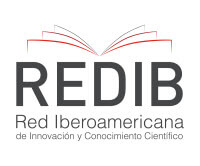Lessons learned from research projects related to developing solutions for people with disabilities
DOI:
https://doi.org/10.33131/24222208.399Keywords:
Disability, Industrial Design, orthosis, ProthesisAbstract
Within the investigative process, there is an essential element to take into account: the purpose of the investigation, its application, and the impact it will have. Despite what may be believed, not all investigations come to a happy conclusion, and even many of them end up stored in the library of a prestigious university. A few more research works, perhaps with something of what we could call “fortune,” manage to be published in a journal: it is worth asking if this is the destination that the researchers had in mind for their project. After almost ten years as a researcher of projects with applications in the health sector, particularly in attention to problems related to disabilities, a fundamental aspect in the process has been the consolidation of a multidisciplinary work group. A team full of passion for creating solutions that serve people with specific needs and generate a better quality of life. However, the most critical element is to treat the end users or patients, as the main characters of the project, as a member who contributes the most valuable knowledge: their coexistence with the disability.Downloads
References
S. Gomez Rosselli y D. Rosselli, «Bibliometric analysis of engineering publications in Colombia, 2010-2019: a Scopus analisis», DYNA, vol. 88, n.o 216, pp. 9-14, feb. 2021, doi: 10.15446/dyna.v88n216.89837
C. A. Páramo-Velásquez, V. Z. Pérez-Areiza, M. J. Betancur-Betancur, y F. Valencia-Legarda, «System for supporting and fixing body segment for nukawa lower limb rehabilitation device», J. Phys. Conf. Ser., vol. 1418, n.o 1, p. 012021, dic. 2019, doi: 10.1088/1742-6596/1418/1/012021
N. Salcedo Zambrano, F. Valencia Legarda, y C. A. Páramo, «Escuela Osteomuscular para operarios de mantenimiento de la Plaza Minorista José María Villa», Rev. Investig. E Innov. En Cienc. Salud, vol. 1, n.o 2, pp. 14-21, dic. 2019, doi: 10.46634/riics.18
E. B. Machado Córdoba y A. A. Pino Martinez, «Desarrollo de un aplicativo para el modelo de alternancia académica en tiempos de COVID-19 “SENA ME CUIDA”», Rev. CINTEX, vol. 25, n.o 1, pp. 32-39, dic. 2020, doi: 10.33131/24222208.357
M. Serna Florez and J. E. Giraldo Plaza, “Sistema distribuido y sensible al contexto para el monitoreo de pacientes con Alzheimer,” Rev. CINTEX, vol. 25, no. 1, pp. 21–31, Dec. 2020, doi: 10.33131/24222208.336.
N. E. Viana-Rúa, L. Y. Arenas-Becerra, and J. A. Patiño-Murillo, “Development of an interactive tool for soft skills enhancement in people with mild cognitive disabilities,” J. Phys. Conf. Ser., vol. 1418, p. 012003, Dec. 2019, doi: 10.1088/1742-6596/1418/1/012003.
Downloads
Published
How to Cite
Issue
Section











